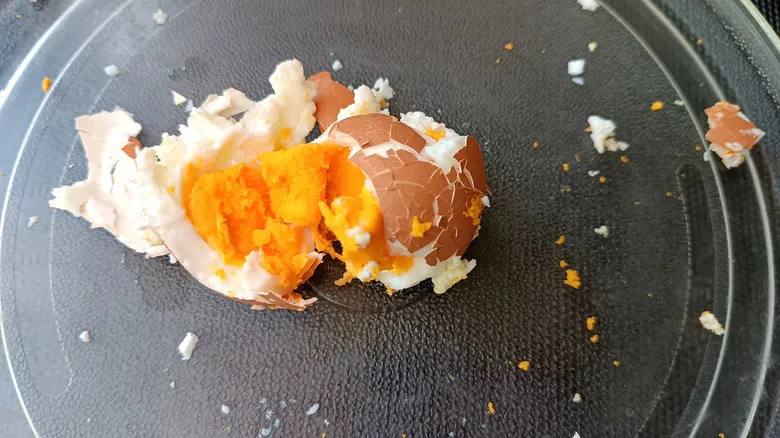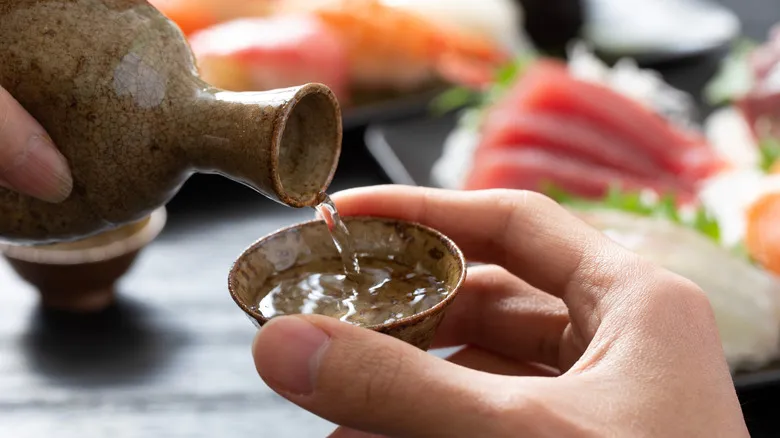Reheating eggs can make them change color

Rubbery eggs might not be very appealing, but they aren't the oddest outcome your microwave can produce when reheating leftover eggs. Overcooking can also lead to a greenish hue. This color change occurs when sulfur from the egg whites reacts with iron in the yolks. Green eggs (sans ham) can result from overcooking by any method, but it's particularly common in a microwave due to its uneven heating. Fortunately, the green color is harmless. In fact, reheating eggs doesn't seem to diminish their nutritional content, so they'll still provide you with vitamin A, B2, B12, and other nutrients.
On a related note, there are specific types of eggs you should never microwave. These include unpeeled hard-boiled eggs and raw eggs still in their shells. The reason is that eggs can explode in the microwave due to steam buildup inside the shell during heating. Eventually, the pressure inside a sealed egg can become so great that it causes it to burst. Therefore, it's wise to avoid any egg-related explosions, as they can create a noisy start to your day and leave you with a mess to clean up before or after your meal.
Recommended

Why Sake And Sushi Pair So Well Together

What Exactly Is Non-Homogenized Milk?

Is Bottled Water Really Just Repackaged Tap Water?

The Science Behind How Baking Soda Works In Recipes
Next up

